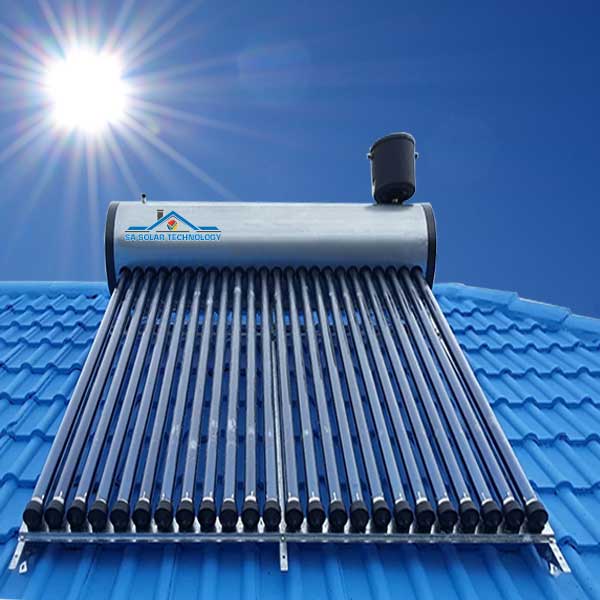Selecting the most efficient water heating system for your home is crucial for both energy savings and efficiency. Solar geysers and heat pumps have proven to be highly efficient options for eco-friendly water heating. In this article, we will explore why you should consider heat pumps and solar geysers for your home.

How Solar Geysers Work
Solar geysers use the power of the sun to provide hot water. Solar water heaters typically consist of solar collectors, a storage tank, and a circulation system. The collectors absorb solar energy, which is then used to heat the water. Solar geysers are a sustainable electricity-based systems.
How Solar Geysers Save Energy
The primary advantage of solar geysers is their ability to cut down on energy usage. By using free energy from the sun, they drastically reduce your home’s energy costs. Along with the cost savings, solar geysers also help reduce your carbon footprint.
Solar geysers are especially effective in areas with plenty of sunshine. During times of lower sunlight, many systems include supplementary heating elements to provide consistent hot water.
Who Should Use a Solar Geyser?
Using solar-powered water heaters is ideal for homeowners who want to reduce their energy bills. If your home receives a lot of sunlight can take full advantage of solar energy from this technology.
Of course, you need to factor in the initial cost of a solar geyser system. Although solar geysers save money over time, the installation and equipment can be significant. Many regions provide tax breaks to cover some of the installation expenses.
What is a Heat Pump?
Heat pumps use thermal energy from the environment to warm your water. Instead of producing heat through combustion or resistance, heat pumps move thermal energy heat pump installer. This makes them a cost-effective solution, because they consume significantly less energy compared to electric geysers.
Benefits of Using a Heat Pump
A key benefit to choose a heat pump system is its energy efficiency. Heat pumps typically consume much less electricity by over 50% compared to standard electric water heaters. This leads to significant savings on electricity bills.
Not only do heat pumps save energy, they reduce greenhouse gas emissions. Since they use renewable energy, they reduce reliance on non-renewable resources compared to older systems.
Who Should Consider a Heat Pump?
Using a heat pump works best for people interested in reducing electricity usage. Heat pumps are highly efficient in mild climates, as extremely cold weather can impact their efficiency.
Like solar geysers, heat pumps require a larger initial investment. Over time, the savings on electricity make them a cost-effective solution.
Which is Better: Solar Geysers or Heat Pumps?
Both solar geysers and heat pumps are excellent choices for cutting down on energy costs. Each one comes with its own advantages and considerations. Consider the following comparison:
Efficiency: Solar geysers use free solar energy, while heat pumps use ambient air to heat water, requiring less electricity.
Initial Investment: Solar geysers may be more expensive to install, but they pay for themselves through energy savings over time. Heat pumps have lower installation costs compared to solar geysers.
Climate Suitability: You’ll get the most out of solar geysers in sunny climates, while heat pumps work well in moderate climates.
Conclusion
Choosing between solar geysers and heat pumps offer great benefits for people looking to reduce energy consumption. If you live in a sunny area and want to maximize eco-friendliness. However, if you live in a moderate climate and are looking for energy savings.
Whichever system you choose, you’ll enjoy long-term savings and contribute to a greener planet.